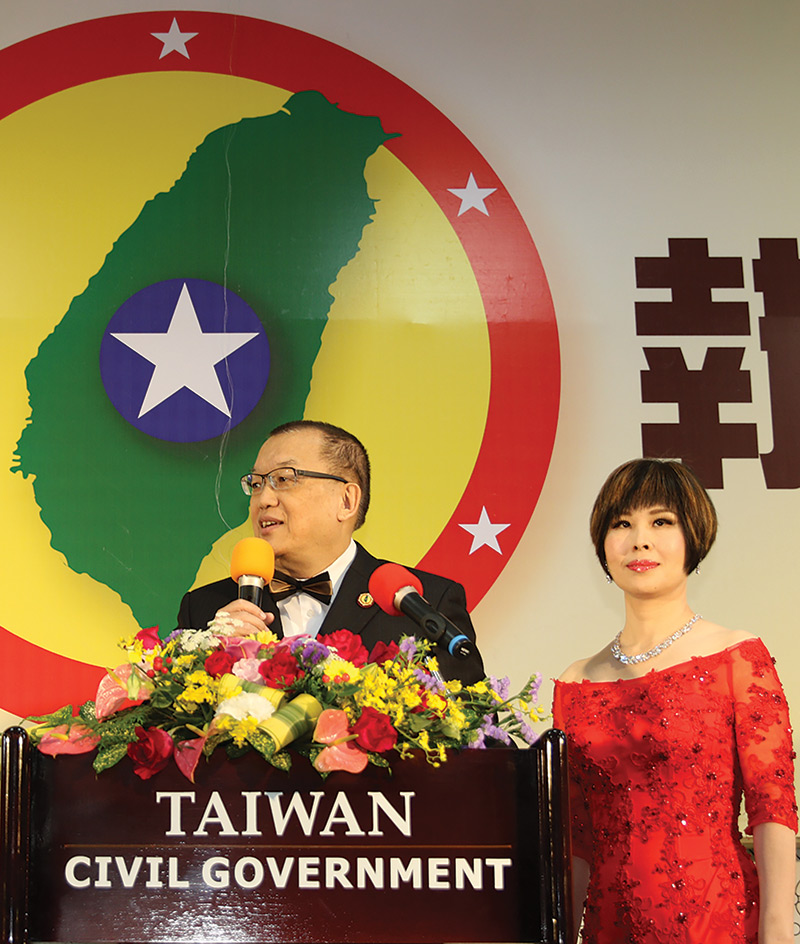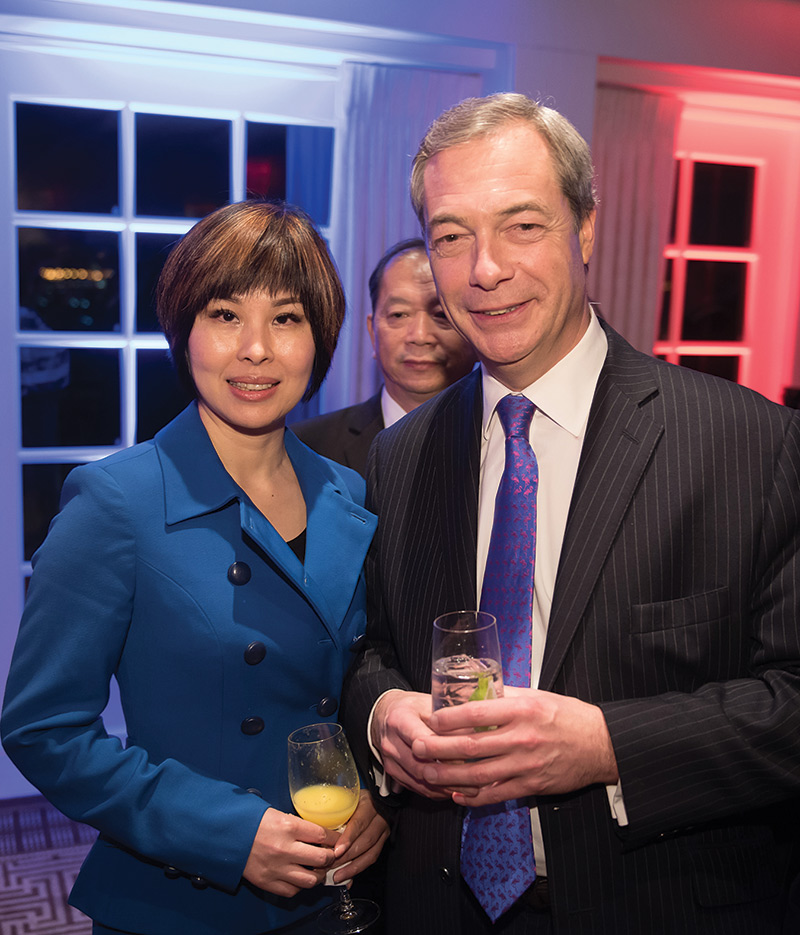G20 Executive Talk Series
Branded Story / TCG
Authored by: Neil Hare
In the Post World War II International Order:
It is Time for Change in Taiwan
There is currently underway a reorganization of the international order and agreements put in place in the years after WWII. Arguably, this movement began with the Brexit victory last July, and has been punctuated with the election of Donald J. Trump last November.
President Trump has made it clear that he will evaluate and change many of the international agreements and organizations that have presided over the last 70 plus years, including defense pacts, trade agreements, and nuclear non-proliferation treaties. He’s told NATO countries they must pay their fair share of defense costs, Israel that he is open to a “One State” solution, and Russia that he is amenable to working with them in Syria towards defeating ISIS.
There is another and very important region of the world where change is needed and that is Taiwan. One of President Trump’s first phone calls after his victory was with the leader of the current government of Taiwan, Republic of China (ROC) Tsai, Ing-wen – something no U.S. President has done in over 40 years. For many, this signaled the end of the “One China” Policy. In a subsequent phone call with Chinese (PRC) President Xi Jinping, President Trump reaffirmed the “One China” Policy, putting U.S. policy somewhere in the ‘active’ middle.
The Taiwan Civil Government (TCG), an educational and advocacy group in Taiwan, argues that the time for change is now. Founded in 2008 by businessman Dr. Roger Lin, the TCG boasts a membership base well over 70,000 members, with rapidly growing new membership rates. The TCG is working aggressively to educate people in Taiwan and Washington, D.C. about the history of Taiwan and the immediate need for a future of self-determination and diplomatic recognition.
![]() The Taiwan Civil Government (TCG), an educational and advocacy group in Taiwan, argues that the time for change is now. Founded in 2008 by businessman Dr. Roger Lin, the TCG boasts a membership base well over 70,000 members, with rapidly growing new membership rates.
The Taiwan Civil Government (TCG), an educational and advocacy group in Taiwan, argues that the time for change is now. Founded in 2008 by businessman Dr. Roger Lin, the TCG boasts a membership base well over 70,000 members, with rapidly growing new membership rates. ![]()
The Taiwanese people have remained in diplomatic limbo since the end of World War II. In the treaty of San Francisco of 1952, Japan accepted defeat and turned over Taiwan and other islands in the region to the U.S. as the “principal occupying power.” Rather than take over full control of Taiwan, the U.S. installed Chiang Kai-Sheck as the Administrator of Taiwan, who ran the island nation for the next 25 years under U.S. protection.
U.S. policy towards Taiwan shifted under President Richard Nixon with the opening of China in 1972. It was during that time that, President Nixon accepted the “One China” policy, essentially agreeing to not officially recognize Taiwan as an independent sovereign nation.
![]() Taiwan has two political parties and regular elections but the TCG does not recognize these parties or the ROC government as legitimate. The ROC is a Chinese government in exile and does not represent Taiwan, and Taiwan is not the ROC in exile.
Taiwan has two political parties and regular elections but the TCG does not recognize these parties or the ROC government as legitimate. The ROC is a Chinese government in exile and does not represent Taiwan, and Taiwan is not the ROC in exile. ![]()

Above: Dr. Roger Lin and Mrs. Julian Lin.
![]() Taiwan has two political parties and regular elections but the TCG does not recognize these parties or the ROC government as legitimate. The ROC is a Chinese government in exile and does not represent Taiwan, and Taiwan is not the ROC in exile.
Taiwan has two political parties and regular elections but the TCG does not recognize these parties or the ROC government as legitimate. The ROC is a Chinese government in exile and does not represent Taiwan, and Taiwan is not the ROC in exile. ![]()
The TCG asserts it is time for the U.S. to remove the policy of strategic ambiguity and take a more active role in letting the people of Taiwan determine their future. TCG argues that under international law everyone has the right to a nationality, can’t be arbitrarily deprived of their nationality nor denied the right to change it.
In 1979, the Taiwan Relations Act removed the assurance of US military support in case of attack, but did provide for robust arms sales. This new relationship, upholding the “One China” Policy while still supporting and maintaining relations with Taiwan, became known as the policy of “strategic ambiguity.”

Above: Mrs. Julian Lin and Nigel Farage in Washington, DC during the inauguration of President Donald J. Trump.
Taiwan has two political parties and regular elections but the TCG does not recognize these parties or the ROC government as legitimate. The ROC is a Chinese government in exile and does not represent Taiwan, and Taiwan is not the ROC in exile. Neither the United Nations, nor most countries recognize Taiwan’s sovereignty. A Taiwanese passport is not widely accepted, and when Taiwan participates in the Olympics, they must do so under the banner of Chinese Taipei rather than their own nation’s flag.
Taiwan has two political parties and regular elections but the TCG does not recognize these parties or the ROC government as legitimate. The ROC is a Chinese government in exile and does not represent Taiwan, and Taiwan is not the ROC in exile. Neither the United Nations, nor most countries recognize Taiwan’s sovereignty. A Taiwanese passport is not widely accepted, and when Taiwan participates in the Olympics, they must do so under the banner of Chinese Taipei rather than their own nation’s flag.
The post WWII world order is shifting, but the import of freedom, independence and human rights that was won at great cost must be upheld. In this case, that means self-determination for the people of Taiwan. The time for change is now.
The post WWII world order is shifting, but the import of freedom, independence and human rights that was won at great cost must be upheld. In this case, that means self-determination for the people of Taiwan. The time for change is now.
Editor’s Note: This material is distributed by Global Vision Communications on behalf of the Taiwan Civil Government. Additional information is available at the Department of Justice, Washington, DC.
Neil Hare is President and CEO of Global Visions Communication, a Washington, DC-based PR and Marketing Agency. He is a writer, creative think tank and an expert on communications and business strategy.